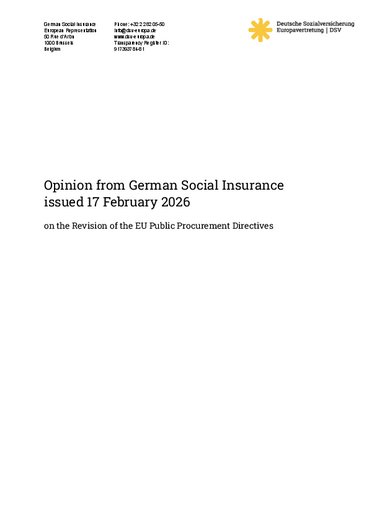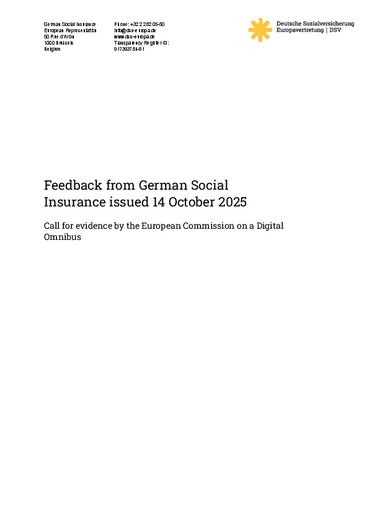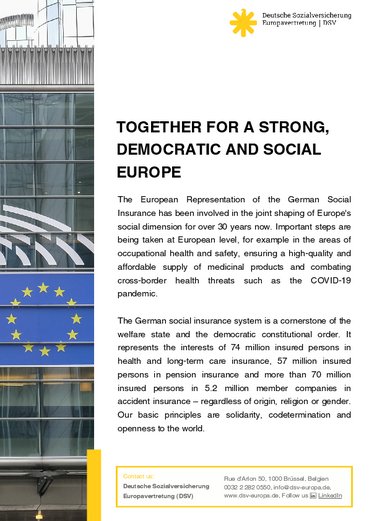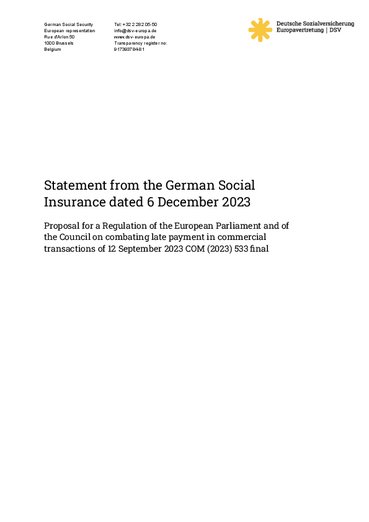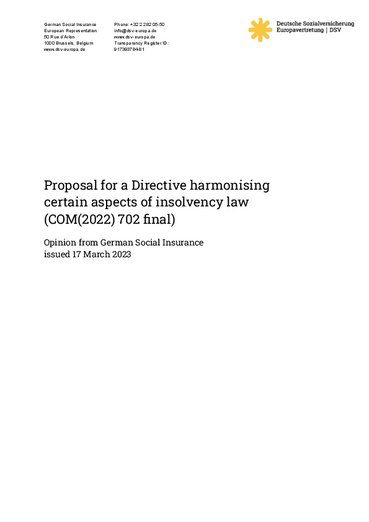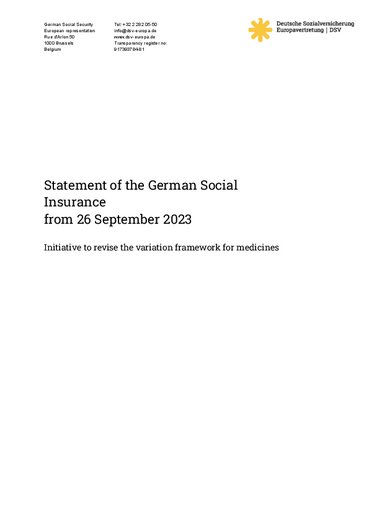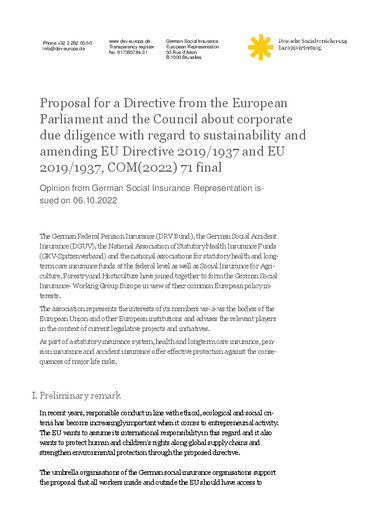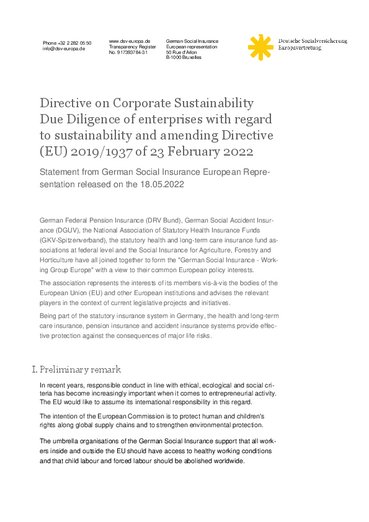Our Positions
Single market and Economy
With the
establishment of the European single market in 1993 and the common currency
union, Europe has grown together a little further. Cross-border labour mobility
as well as economic transactions and movement of goods have increased since
then. The single market is now the economic heart of
the European Union. However, it is not a static entity. Political, economic,
social and technological developments shape economic coexistence in Europe.
This requires constant adaptation and further development of the single market.
However, a necessary prerequisite for its ability to function is a stable
social law framework based on modern coordination law and high standards for
social, health and labour protection.
The German Social Insurance (DSV) closely
follows the relevant European policy initiatives with the aim of enforcing the
social rights of insured persons and guaranteeing their complete coverage in
the event of cross-border employment. In addition, new legislative initiatives are
examined with regard to their possible effects on the social security
schemes. One example is the European
Supply Chain Act, which aims to protect the environment as well as human and
children's rights along global supply chains, but which surprisingly classifies
social security institutions as financial enterprises.

